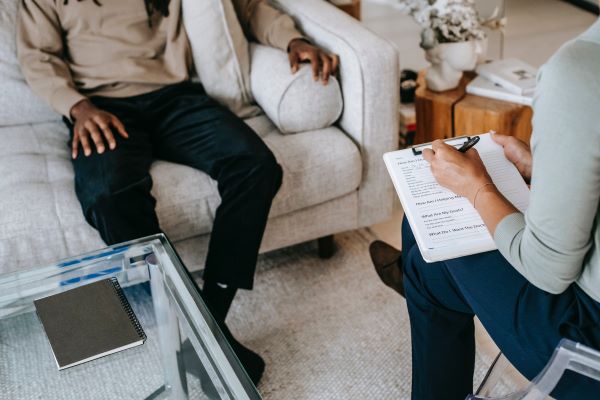Understanding Psychotherapy Better
Table of Contents
Individual psychotherapy is a joint process between a therapist and a person who decides to undertake this path. Usually, the goals of therapy can be inspiring change or wanting to improve the quality of one’s life. People may decide to go to therapy to find help with problems that are difficult to deal with on their own. Individual psychotherapy is also called therapy, psychotherapy, psychosocial therapy, interview therapy, and psychotherapeutic counseling.
Therapy can help people overcome personal obstacles and take care of their well-being. It can definitely increase positive feelings, such as compassion and self-esteem, and can be helpful in learning the skills of handling difficult situations, making healthy decisions, and achieving set goals.

When is it good to look for an individual psychotherapy path?
It may be a good time to consult an individual psychotherapy professional if a problem causes distress or interferes with daily life. Distress can manifest itself in the form of disturbing thoughts, overwhelming feelings, negative behavior, or even as a physical sensation, in the form of pain or fatigue. It is important not to wait for symptoms to become severe before seeking help with therapy. If you often feel unhappy or feel overwhelmed and hopeless it is good to seek advice and understand together with a psychotherapist if it is good to start a path: these feelings hardly go away by themselves and do not recur. Therapy can also help a lot in case of difficulty concentrating at work or school, cases of addiction and lack of love for oneself and for others.

Why are so many people afraid of individual psychotherapy?
Many completely exclude the idea of turning to a psychotherapist for many reasons. Let’s see which are the most common:
- Concern about the social stigma that identifies negative mental health care
- Strong shame when it comes to past wounds
- Denial (not wanting to acknowledge that something is wrong)
- Difficulty trusting (fear that discussions during therapy will not remain confidential)
- Money problems (individual psychotherapy is often seen as too expensive to be needed)
We think it may be helpful to remember that therapists are trained professionals who have no interest in judging us and who help provide support and who, above all, maintain confidentiality for both professional ethics and legal obligation. These are people used to helping people work on painful or embarrassing problems which, although thought to be unique, are often common conditions that have also affected other patients. Some therapists also offer degressive rates or other financial assistance to people in need or enter into agreements with associations or health organizations, in order to guarantee access for all.
A qualified therapist can help people solve their problems and make lifestyle changes. They can also help identify the underlying causes of symptoms that have been misidentified or overlooked or ignored, and provide helpful strategies for changing unwanted thoughts and behaviors. Therapy can provide the skills to manage distress, reduce stress, and improve quality of life.

What can individual psychotherapy help us with?
Therapy can help treat mental, emotional, physical, and behavioral problems. Some of the situations that can be discussed in therapy include:
- Anxiety
- Fatigue
- Food problems
- Anger
- Relational challenges
- Dependence
- Abuse
- Family issues
- Insomnia
- Sexuality
It is therefore a question of analyzing problems and finding solutions in situations that are really widespread and very common and which, as much as they seem to be our problems (and only ours), are possible paths of resolution and solutions suitable for us.
What should be expected from individual psychotherapy?
The first therapy session often focuses on gathering information. A therapist talks to the person being treated about their past physical, mental, and emotional health. The concerns and situations that led the person to choose individual psychotherapy are also discussed. It may take a few sessions for a therapist to have a good understanding of the situation. Only then can they address their concerns and determine the best course of action.
In addition, the person in therapy can also use the first session to decide if the therapist’s style is suitable for their needs. Finding a therapist you are comfortable with is vital to the success of the treatment. It is important to talk about the type of therapy to be used, the goals of the treatment, the length of the session, and how many sessions are needed. Many therapists encourage people in care to have most of the conversations. At first, it can be difficult to talk about past experiences or current concerns. Individual psychotherapy sessions can in fact arouse very intense emotions, which we are not always used to. It is possible to feel upset, angry or sad during the treatment. However, therapists can help people build confidence and feel more comfortable as sessions progress.


















